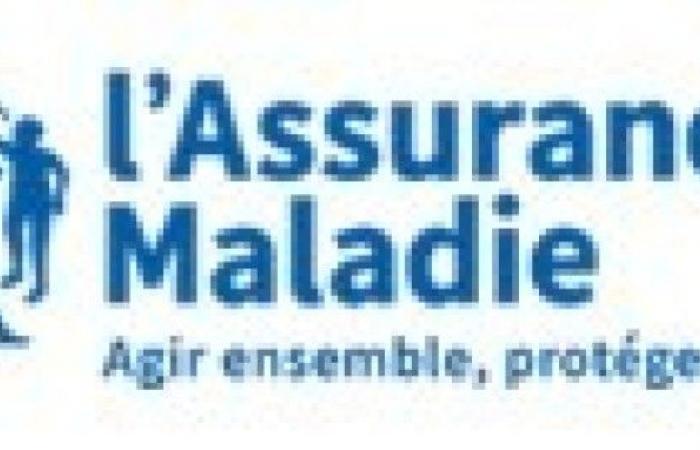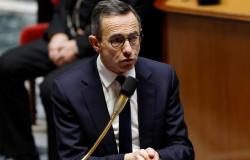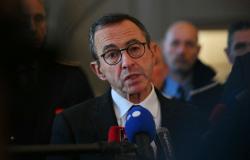General practitioners and specialists: what will change for policyholders in 2025 to improve access to community medicine and care
patients
The new medical agreement between Health Insurance and private doctors implements concrete measures for quality city medicine accessible to all.
The 2024-2029 medical agreement signed between Health Insurance and private doctors, aims to fundamentally transform our local health system to maintain its quality and accessibility in order to improve the working conditions of doctors, encourage people to settle in a city practice, and ultimately, enable quality, long-term monitoring for our policyholders.
These changes, implemented on December 22, began with the first strong measures to upgrade consultations.
Listening to doctors and the needs identified in their daily practice, the medical agreement integrates a series of measures, deployed until 2026, for city medicine adapted to the challenges of today and tomorrow.
“This agreement is essential to preserve the quality of the current urban health system and prepare it for the challenges of tomorrow… offering patients better access to their doctor, care more adapted to their needs, while allowing doctors to concentrate on their main mission: caring. These measures are not simply technical or administrative: they will have a direct impact on the monitoring of patients and on the daily lives of doctors,” for Thomas Fatôme, general director of Health Insurance.
Prices
– The consultation with the general practitioner thus increases from €26.50 to €30.
– Certain specialties are subject to revaluations which will take place in two stages (1st stage on December 22, 2024, 2nd on July 1, 2025), among these: the consultation with the medical gynecologist thus increases from €33.50 to €40 (37€ as of December 22, 2024), from 51.70€ to 57€ at the psychiatrist (55€ as of 12/22/2024).
Revaluations open to doctors practicing in a sector with an enforceable rate (sector 1) or having subscribed to the controlled pricing practice option (or in a sector with different fees when the consultation or visit is billed at an enforceable rate).
The specialties affected by the revaluations of consultations are as follows: pediatrics, medical gynecology, geriatrics, psychiatry, neurology, endocrinology, dermatology, physical medicine and rehabilitation. For other specialties not targeted by the increases, the consultation with the corresponding specialist remains at €31.50.
For doctors in sector 2 who have not joined Optam/Optam-ACO and are overspending, the consultation rates are €23 (€42.50 for psychiatrists and neurologists).
These increases, which will be covered by Health Insurance and supplementary health insurance, will improve the remuneration of these medical specialties, whose income is among the lowest and has been stagnant for several years.
The objective is to make community medicine more attractive for general practitioners and these specialists and thus revitalize the installation of practices, an essential local link for our health system and for the daily life of policyholders: every day 1 million patients consult their general practitioners.
Upgraded child consultations to better support families
Many measures to meet the needs of children and parents.
The prices for follow-up consultations with the pediatrician are increased from December 22 to €39 for 0-2 year olds (€40 as of July 1, 2025), to €35 for 2-6 year olds and to €31.50 for those over 6 years old., as well as at the general practitioner, the child’s follow-up consultation is also increased to €35 for those under 6 years old.
In pediatrics, obligatory consultations, 100% covered, which are key steps for monitoring the child, and which require dedicated and in-depth medical time are thus revalued. For example, the 3 mandatory consultations giving rise to a certificate are increased to €60 compared to €47.5 currently (€54 from December 22, 2024).
In order to respond to situations requiring in-depth expertise, a new pediatric expertise consultation, at €60, is created on July 1, 2025 for children aged 0 to 16. Accessible by address (from a doctor, school doctor, PMI, midwife, speech therapist or orthoptist), it will strengthen early detection and monitoring of developmental disorders, chronic pathologies or complex situations requiring care. coordinated and targeted.
While the mental health of 12-25 year olds has deteriorated since the health crisis, child psychiatry consultations are reinforced and increased to €75, compared to €54.7 today (€67 from December 22, 2024).
They will concern young people up to 25 years old and only 16 years old. So-called “complex” consultations, involving the presence of the family for a child with a serious psychiatric pathology, are also upgraded, to encourage appropriate monitoring of delicate situations.
Measures to better take into account the issues of population aging
Specialist in monitoring the elderly and specific pathologies linked to aging, geriatric doctors will see their consultations increased to €42 on July 1, 2025 (€37 on December 22, 2024, and €31.5 today).
From January 2026, patients over 80 will be able to benefit from a long consultation with their treating doctor in certain situations which require him to devote more time to them, valued at €60, this new consultation, which meets the needs reported by treating doctors, will allow them to better monitor their elderly patients in three common situations: discharge from hospitalization; referral to social support for staying at home (APA3 files); reducing the number of medications prescribed for hyperpolymedicated patients
For elderly patients, often suffering from multiple pathologies and requiring coordination of care and interventions between different healthcare professionals, the medical agreement provides for improved remuneration for the attending physician: thus, the attending physician package now provides for an amount of €100 per year, for the follow-up of a patient over 80 years old and with a long-term illness.
.
Focus on areas where there is a shortage of doctors and the solutions provided
For residents of areas where the medical supply is insufficient, Health Insurance deploys strong measures to encourage doctors to settle there, practice there or intervene there regularly. Focus on several of them:
– The medical agreement has strengthened, since its signature, support for the employment of a medical assistant which allows doctors to receive daily help in their practice and to devote more time to consultations. On average, a doctor who works with a medical assistant follows 20% more patients as an attending physician.
– Aid for installation and activityn priority areas are simplified and automatically paid, from January 2026, to allow all eligible doctors to benefit from them without complex procedures on their part via the remuneration paid annually to treating doctors.
In addition, still from January 2026, a one-off aid of 10,000 euros will be paid to doctors who choose to set up in these priority areas.
– Finally, one-off consultations in these under-resourced areas will be valued at 200 euros per half-day, so that doctors are supported when they travel outside their office and meet these patients who have them. need.
the objective is simple: to offer local care to everyone, everywhere in France.
Furthermore, doctors and Health Insurance are committed to acting collectively to improve access to care.s (territorial and financial). Ten key indicators will be subject to regular monitoring via a national observatory, rolled out at the local level towards more sober and efficient city medicine.
In order to encourage practices aligned with public health recommendations and ensure the proper use and fair use of Health Insurance resources, the new agreement proposes concrete solutions which will promote the proper use of care and reasoned prescribing:
– Prescription objectives in accordance with recognized scientific recommendations:
15 priority action programs concern in particular antibiotic resistance, the proper use of analgesics, proton pump inhibitors (PPI) and the limitation of polypharmacy.
– Incentive schemes to encourage more virtuous medical practices will be put in place from January 2025. They will include the prescription of biosimilars, the “deprescription” of PPIs and the use of orthotics for sleep apnea, guaranteeing more relevant and effective care.
The new medical convention also addresses environmental issues. It offers concrete solutions to reduce the waste of medicines, but also of medical devices such as dressings. From January 2025, doctors are encouraged to adopt good, more responsible prescribing practices. By adopting these good practices, they will receive a “sobriety bonus” of €1,000 after one year.
Remember that among the carbon emissions of the health system, 50% are linked to health products, including 29% for medicines and 21% for medical devices.
Finally, prevention occupies a central place in this new agreement, with the aim of detecting diseases earlier and better supporting patients in managing their health. Thanks to their new flat-rate remuneration implemented from January 2026, treating doctors will be more encouraged than ever to properly direct their patients towards early detection of cancers, chronic or cardiovascular diseases, as well as vaccination campaigns.
General practitioners and specialists: some key figures in the region
· 221 private doctors in the department
· 161,540 insured in the Gers department
· 494,811 consultations in 2024 in general medicine
· 80,521 consultations in 2024 in specialized medicine
Find all the new prices and measures of the medical agreement
in the dedicated space on ameli.fr






